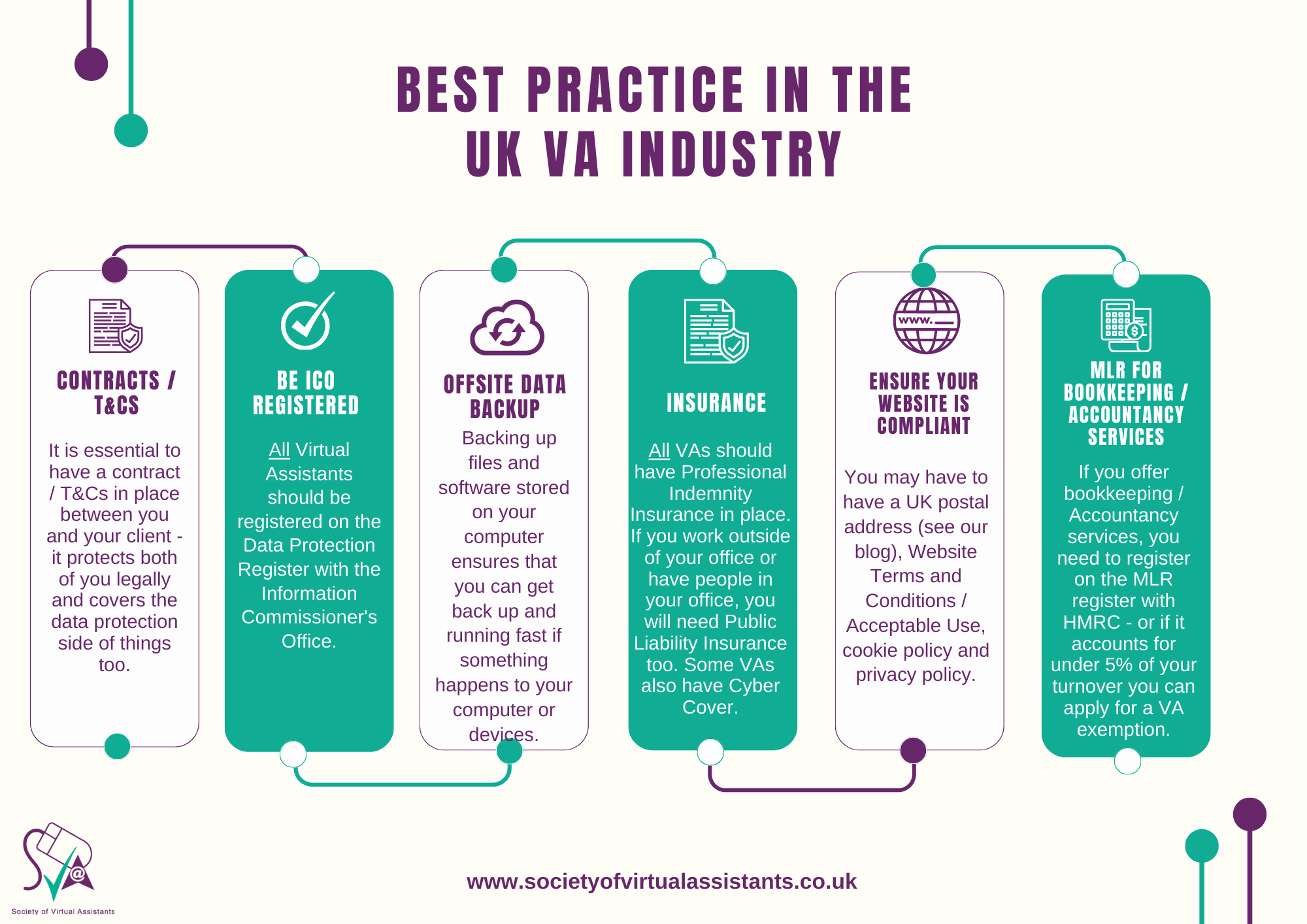You are ready to be a Lead VA and take on associates, but how can you protect yourself?

Once you have reached capacity in your VA business, you may want to keep that growth going and continue to take on more work by taking on other VAs as associates, that way you can either pass ad hoc jobs or whole clients to them, but still under the umbrella of your business.
But there are things to be aware of, not least how can you protect yourself whilst doing this? So here are some top tips on what to do to ensure you get the best experience and what you can do to protect yourself.
Contracts
Well, that’s where associate contracts come in, and contracts are essential – they protect you and the associate.
When you take on an associate you will issue them with a contract (not the other way around). This contract acts as a set of clear instructions written down and agreed to by both parties (you and the associate). Contracts ensure everyone knows what’s expected of them and what they’ll get in return. Importantly, a good contract ensures that your associate won’t then run off with your client because there should be a term written in it to prevent that from happening.
And should the worst happen and a rogue associate decides to take your client for themselves, your contract means that legally, they could be in serious trouble, as a good contract will be upheld by a court – should it get that far. Vitally, contracts ensure everyone’s on the same page from the start, so it never gets to that.
Just to note, if a potential associate refuses to sign your contract, then that is a big red flag.
VA Associate contract suppliers around the UK include:
- KoffeeKlatch (affiliate link) – https://www.koffeeklatch.co.uk/virtual-assistants/?campaign=UK%20VAs&ref=SVA
- Aubergine Legal – https://www.auberginelegal.co.uk
- Suzanne Dibble – https://suzannedibble.com/
- FSB – https://www.fsb.org.uk/
Due diligence
Taking on an associate should be taken as seriously as taking on a staff member. They are going to be part of your team, and therefore, you need to make sure that the dynamic is going to work, that you trust them and that they are who they say they are. It is good practice to ensure that any associate meets the industry best practice (see the graphic at the top of this blog).
You should also be checking that they are who they say they are. Your insurance company may not protect you if you do not put this into practice, and the Information Commissioner’s Office (ICO) need to know that you are sharing data cautiously and sensibly. So, check for a form of photographic ID, their insurance certificate, ICO Registration Number, and if they are going to be invoicing or updating financial information for you, then both you and they must be MLR Registered, and you can ask for their registration number (find out more about MLR here): https://www.societyofvirtualassistants.co.uk/2019/04/24/anti-money-laundering-regulations-for-virtual-assistants/
Meet the potential associate either face to face, or on a video call if that is not practical.
Remember, just like employing someone, you are going to be working quite closely with this associate, so you need to make sure the dynamic is right. It’s fair to say that not everybody can work with everybody, different characters, expectations and communication skills can cause tension and challenges. So, do meet them, make sure you get on well, ask them some set questions and get a feel for them as a person as well as a virtual assistant. If it doesn’t feel right, trust your gut and move on.
Insurance
It’s always good practice to inform your insurance company that you intend to work as a team rather than just you, as it may change your policy.
Boundaries
Boundaries are also important; ensure that your team members know when you are and are not available, just as you would set boundaries with your clients, you should also set boundaries with your associates to ensure you are not being disturbed during your time off, overnight or on holiday unless it is an explicit emergency. Burnout is very real, and it isn’t fun!
Finally:
Before you put any of the above in place, ask yourself:
- Are you a control freak?
- What is your motivation for doing this?
- How will you feel if an associate makes a mistake or on the other hand, does a better job than you?
- How big do you want your team to get, i.e. do you want to manage a team rather than be a VA?
- Are you prepared to pay your associates a fair wage?
- Do you have the capacity to manage your team and your personal clients too?
- Do you have the finances to put tools and resources in place for your team?
These are things to consider carefully and honestly. For example, the transition from I to We is not going to be an easy one for you or your team member if you are a control freak. Can you change your ways, or will you have unfair expectations of your associate?
If you want to grow your team and you are not sure where to start, we have some great resources on the SVA website, so please have a mooch around. And, if you are serious about growing your team significantly, Holly Copsey runs a group on Facebook called The Visionary VA Circle, you can find that here: https://www.facebook.com/groups/visionaryvacircle
